Bet my parents started doing this sooner . I know i have depression , and i'm suicidal and they still don't believe me when i try to talk to them about it . Its kinda unfair . Luckily i have a therapist for something else i can talk to , but now i'm wondering if this will have an effect on me as i grow up.
Experts Shared 10 Child Behaviors Parents Ought to Worry About
Generally, kids experience a change in behavior because they’re tired, hungry, bored, or even frustrated. But whatever the reason, these changes can be worrisome. That’s because they can be a part of a deeper, more serious problem. They might be feeling lonely and isolated from their peers, have started gossiping, or are even showing clear cut signs of ungratefulness.
We at Bright Side agree that these behavior changes are cause for concern and have looked at what experts have to say about them. And now, we can share what we’ve learned with you.
1. Your kid has a hard time learning things.
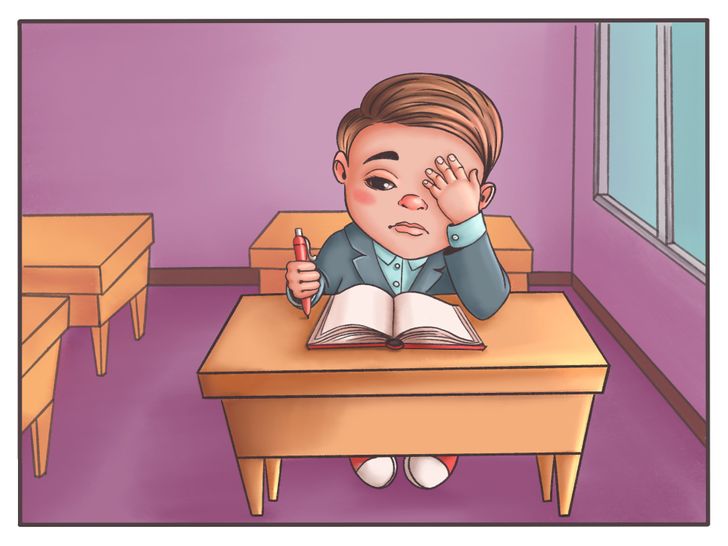
If you notice your child is having trouble learning basic skills, they might have a learning disability, which means they will struggle more than kids without one.
Reason: It’s a condition that limits the learning of some specific skills.
What to do: Early detection is key to fight this. If your child gets the help they need along with additional support at school with specialized teachers, they’ll be fine.
2. Your kid has started gossiping.
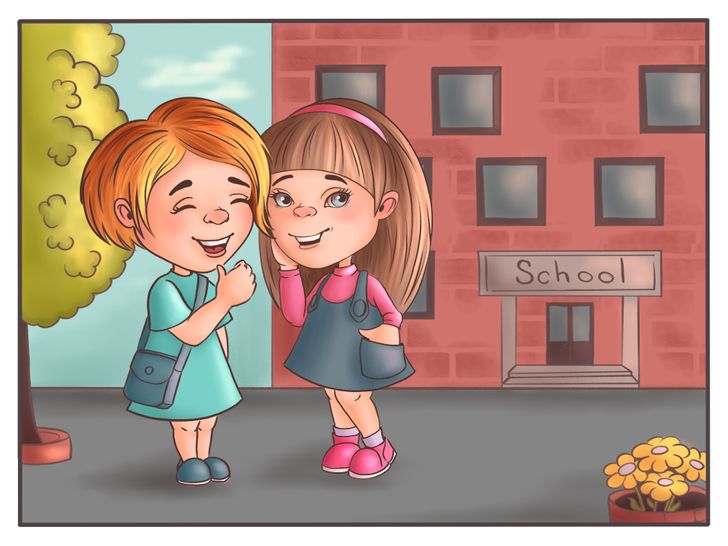
It’s important to differentiate between harmless gossip and hurtful chatter. Even though it’s rare for some kids to start rumors, it’s easy for them to spread them.
Reason: They might believe this will help their peers like them more or make them popular.
What to do: As a parent, you can try to explain to them why gossiping is unkind to others and that when you gossip, it’s likely others will gossip behind your back too. If needed, you can advise them to go to their teacher. You don’t want your kid to become a bully.
3. Your kid starts self-harming.
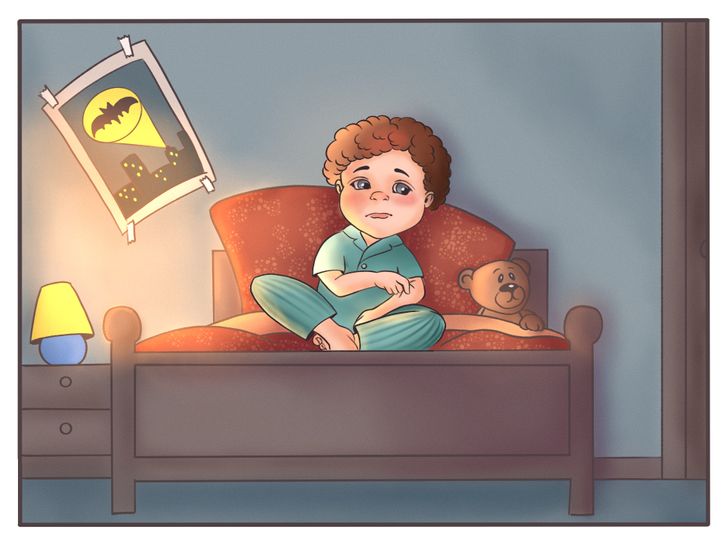
If your kid starts showing beginning signs of self-harm, it’s a call for more thorough parental care, psychiatrists say. Younger children tend to pinch, scratch, or punch themselves. Pre-teens and teens move more into cutting and burning behavior.
Reason: They might have low self-esteem or are dealing with inner feelings they think are unacceptable.
What to do: If your kids are self-harming, you should take them to a child therapist so they can process their emotions.
4. Your kid threatens to run away.
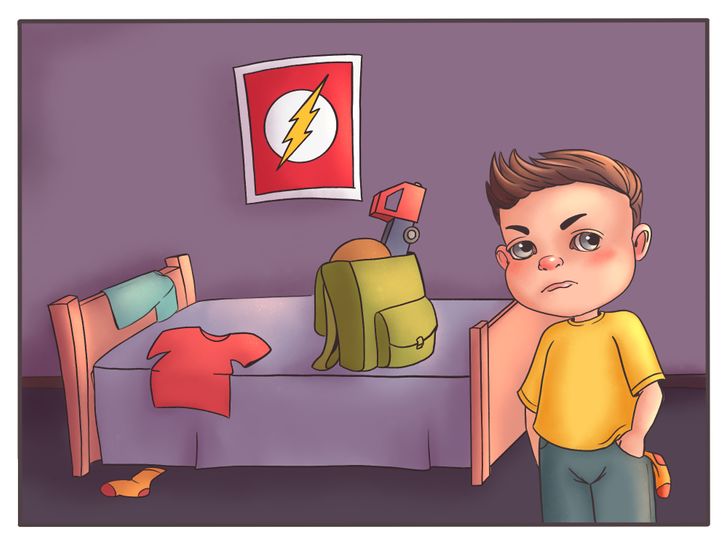
If they’re under enough stress, any kid can justify running away, psychologists claim.
Reason: One of the main factors here is that kids often idealize running away and develop a romanticized view of life on the streets. They might try to run away to avoid humiliation or embarrassment as a consequence of being caught cheating in school or having done something bad, for example.
What to do: Talk to your kid and try to establish a trustful relationship in which the kid feels comfortable sharing anything.
5. Your kid is afraid of falling asleep at night.
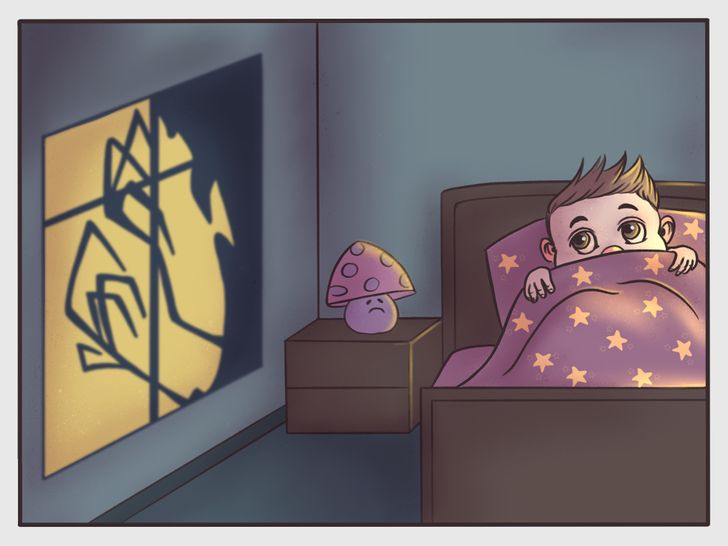
If your kid used to be a good sleeper but suddenly experiences interrupted sleep or can’t sleep at all, it’s reason enough to pay more attention. They’re not trying to steal your time or be difficult.
Reason: They feel like there’s a threat lurking around every corner.
What to do: The quickest way to help your child’s sleep issues is to address their nighttime fears and help them overcome them.
6. Your teenager is showing signs of depression.
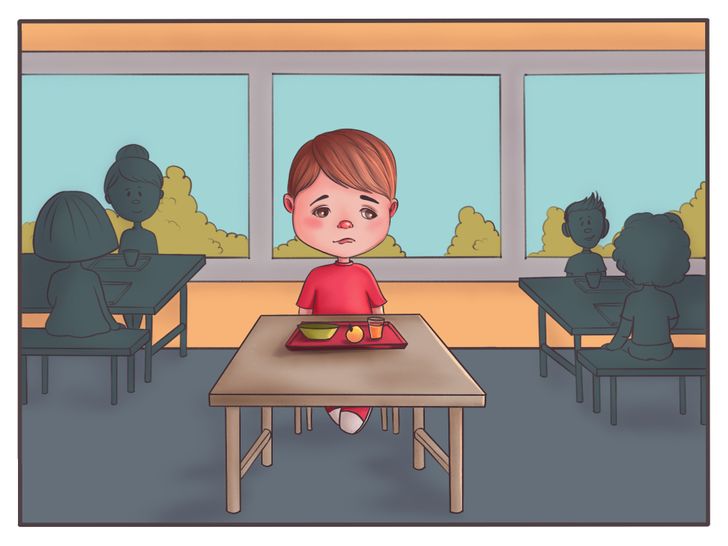
Depression is a very real problem, and sometimes our own kids will struggle with it. More often than not, they’ll say something that will make you fear for their safety. If they’re being rebellious and showing unhealthy behavior, this might be why.
Reason: They might be having problems at school or are struggling to relate to their peers. There’s a wide range of things that can be part of the reason for this.
What to do: Their feelings and concerns need to be acknowledged by their parents, gently, without pushing too hard. If they’re vocal about harming themselves, you shouldn’t dismiss it as empty words, and if necessary, look for professional help.
7. Your kid has stopped playing with their friends.
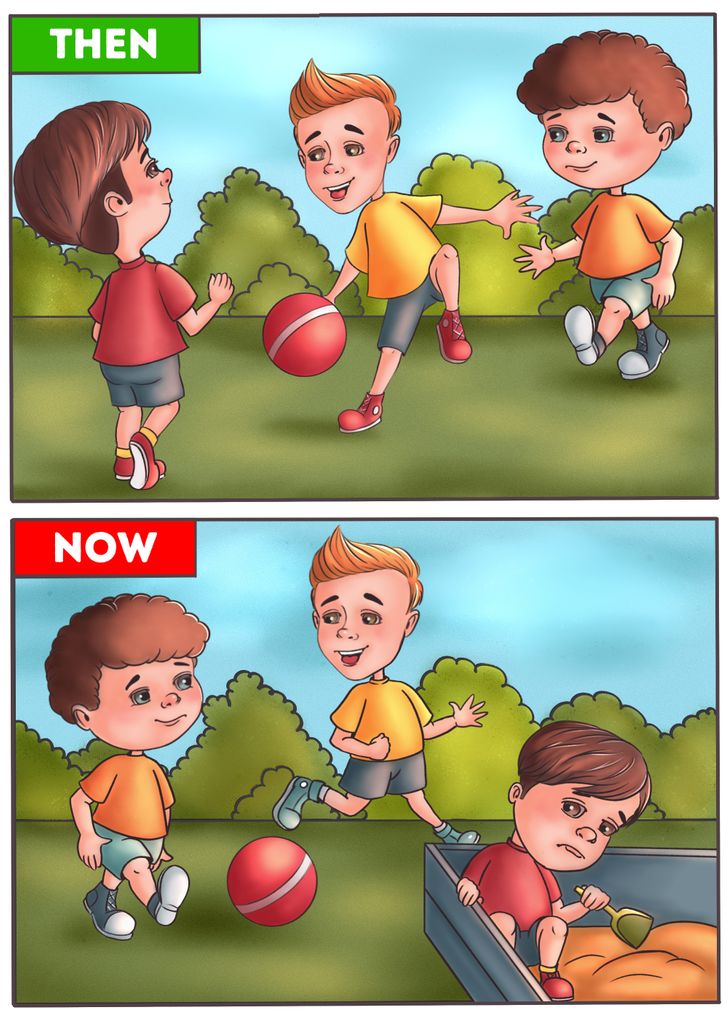
It’s not unusual for kids to have disagreements, and they usually solve them pretty fast. However, if one of your kids is struggling with this, don’t instantly call their friends’ parents. Instead, try helping them solve the problem.
Reason: They might have argued with a friend at school.
What to do: Give suggestions on how to solve their argument. For example, try helping them practice saying sorry so they can learn how to apologize to their friends.
8. Your kid throws tantrums often.
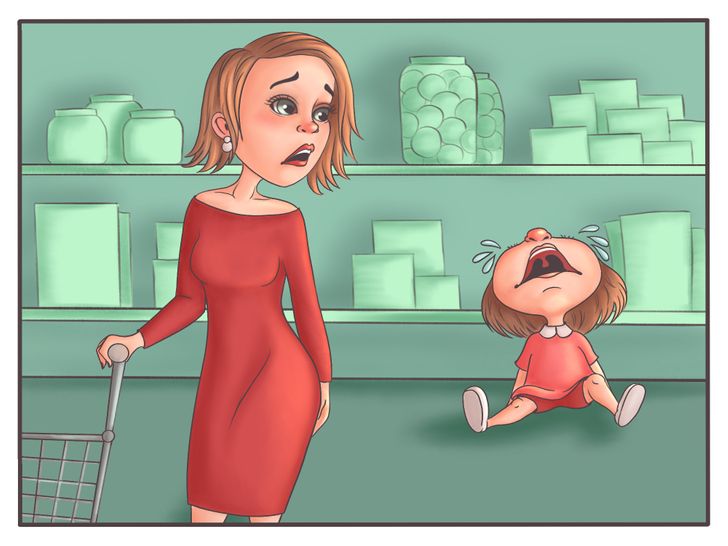
Kids can often have trouble dealing with their emotions. If this happens, take a step back and examine the situation. If you’re able to successfully do this, you might be able to prevent it in the future.
Reason: They might be struggling to deal with uncomfortable emotions, like anger, sadness, or disappointment. Another reason tantrums can happen is if kids try to control the situation themselves.
What to do: If this happens, take a step back and examine the situation. If you’re able to successfully do this, you might be able to prevent it in the future. For example, if your kid gets a toy every time they enter a store, this is reason enough for a tantrum. Before entering a store, reason with the child and let them know you’re only there for grocery shopping.
9. Your kid acts ungrateful.
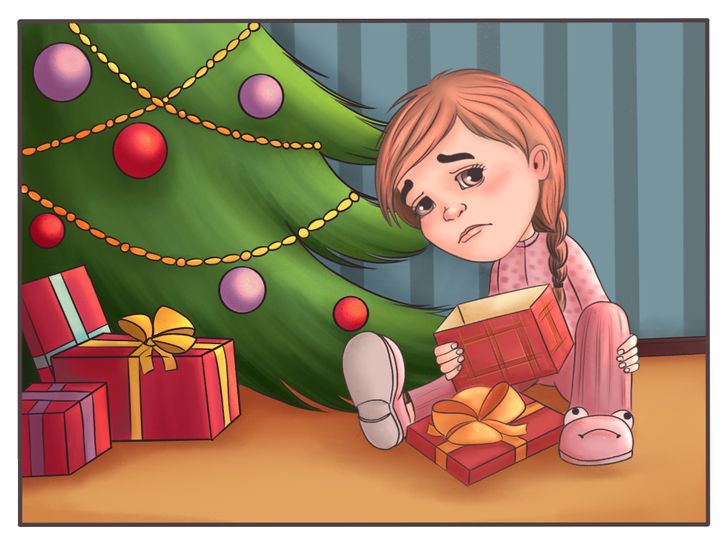
Without even thinking about it, sometimes kids blurt out things that sound very rude and ungrateful. At their birthday party, when someone offers them something they don’t really care for, some kids might be quick to show their displeasure. If they understand how their behavior can affect other people, they will develop better empathy toward others.
Reason: They might feel entitled to things without having earned them first.
What to do: Help them realize that gifts cost money and that people often spend a great deal of time choosing the gift they think they’ll like the most.
10. Your kid back talks a lot.
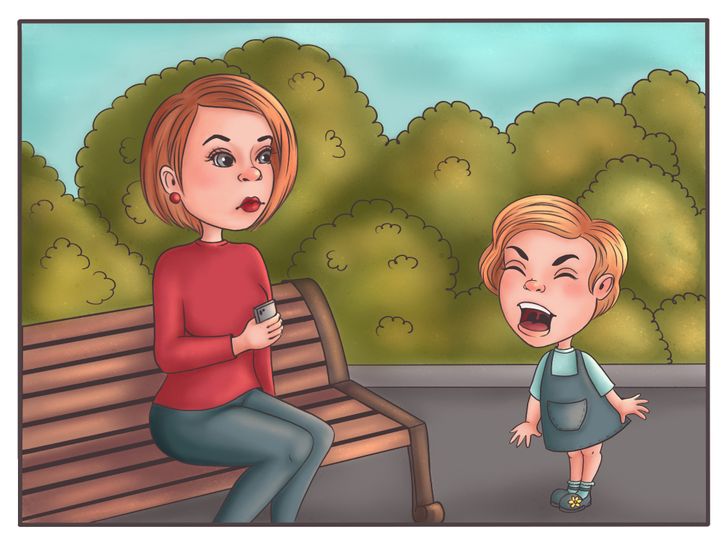
Every kid back talks every now and then, but it starts being a problem when it’s excessive. Sure, it’s part of a child’s development, but it needs to be controlled. Boundaries have to be set.
Reason: They might be looking to get your attention and will do this if they’re feeling ignored or abandoned. It can also be because they’re trying to take control over what they do.
What to do: Make sure you’re paying enough attention to your child. Enforce consequences, like, for example, less screen time, and establish the behavior you expect from them. Let them know it’s not okay to yell or talk back.
Is your kid currently showing any of these behaviors? What are some of your tips to deal with it? Have you noticed any concerning behavior in your kid that wasn’t covered in this article?
Comments
I think I got lucky with my parents. They were always very close to me and tried to solve all my tantrums with a good talk
some of the things you mentioned are part of growing up. Stop trying to scare the parents.
once when I got really mad because I couldn't turn the pages of my stupid textbook, I BIT THE BOOK well that was a long time ago 😂
Related Reads
I Didn’t Allow My MIL in the Delivery Room — Now She’s Out for Revenge

I Refuse to Pay My DIL’s Medical Bills—She’s Broke and Needs a Reality Check
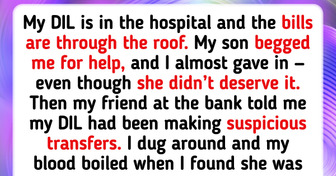
13 Stories That Show How Fabulously Greedy Some People Can Be

My MIL Forbade Me From Coming to Thanksgiving - There Was Heinous Plot Behind It

15+ Stories That Show What It’s Really Like to Clean Your Home

My Fiancé’s Secret Christmas Plans Left Me Feeling Invisible

12 People Who Discovered Secrets They Shouldn't Have Known

I Welcomed My Best Friend Into My Home—She Destroyed My Family
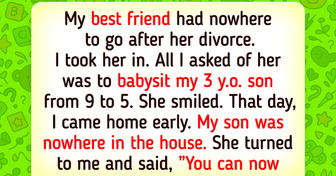
I Told My MIL She’s Not Allowed to Babysit My Child Anymore

12 Wild Stories That Prove Cheating Isn’t For the Faint-Hearted

I Refuse to Split My Inheritance With My Stepbrother—Now My Stepmother Is Using Dirty Tricks Against Me

15 People Who Were Blessed by an Instant Twist of Fate
